I Am Underweight Or Losing Too Much Weight What Should I Do
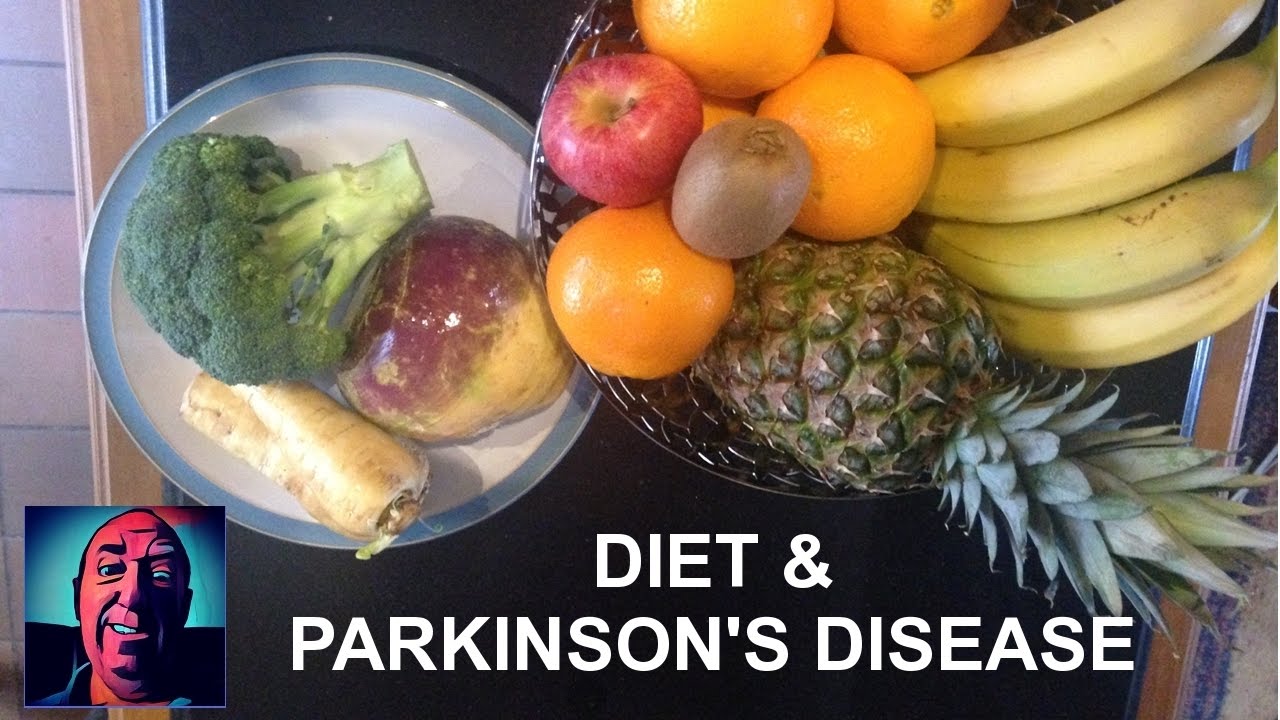
If you are underweight or have difficulty putting weight on, it may be because of the side effects of Parkinson’s medication or difficulties with chewing or swallowing.
Weight loss is caused by your body using more calories than you’re consuming. This may be due to increased movement caused by tremors or dyskinesia. It may also be due to practical problems, such as food shopping, preparation or keeping your food hot while you’re eating.
You may find the following tips useful:
- Make the most of adding extras to foods, such as extra cream, butter, oil or honey where you can. These will make the food more energy-dense and tasty.
- Try to have 3 meals a day and 2 to 3 snacks between your meals. It’s important to try to eat every 2 to 3 hours during the day.
- Instead of snacks, try having a milkshake, malted drink or smoothie. These may be used to supplement your usual diet. But, if you find you are replacing your meals with these, it is important to seek help from a dietitian.
If you are finding it difficult to maintain your weight or reach a healthy weight, your GP, specialist or Parkinson’s nurse can refer you to a dietitian.
They may recommend tailored changes to your diet and special high-calorie products that are available on prescription.
Parkinsons Nutrition & Living Well
In this 1-hour webinar Dr John Eric Duda discusses how dietary choices can affect symptom control in PD, how particular foods and timing of meals may interfere with PD medications, dietary management of some non-motor symptoms, the role of the gut microbiome in PD, how nutrition can change the molecular mechanisms present in people with PD and even provide disease-modifying effects, and more. Registration is required, but it is free.
Foods That Are Hard To Chew
Many people with Parkinson’s have difficulty with chewing and swallowing foods. A person needs medical help if this is the case. A speech and language therapist may be able to help a person overcome this issue.
However, if a person is finding certain foods hard to chew and swallow, they may wish to avoid these foods.
Such foods include:
- dry, crumbly foods
- tough or chewy meats
If a person does wish to eat chewy meats, they could try using gravy or sauce to soften them and make eating easier.
They could also try chopping meat into smaller pieces or incorporating meat into casseroles, which can make it more tender.
Having a drink with a meal can also make chewing and swallowing easier.
Managing Medication Side Effects
- Drink lots of water to avoid dehydration-induced headaches and muscle tension.
- Drink green tea, bone broth, or ginger tea to boost your immune system.
Don’t:
- Drink alcohol or coffee or any other caffeinated beverages to avoid having sleep issues.
Knowing what to eat and what to avoid can help you manage the symptoms of Parkinson’s disease. Follow these tips to relieve symptoms and have a better quality of life.
Consult your doctor to know what other foods you can consume to help you manage Parkinson’s.
Engage with the community by asking a , telling your , or participating in a .
Tips For Getting Started
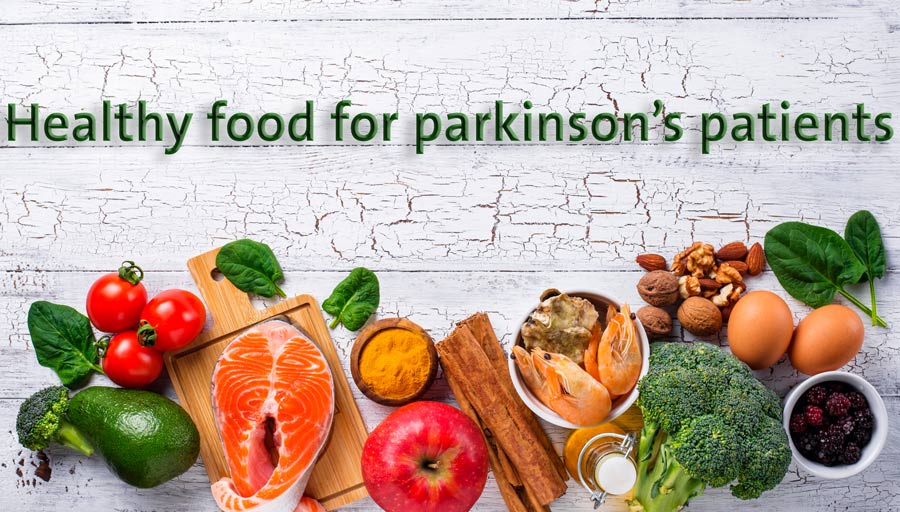
- Changing your diet can be difficult. Try making one change at a time, like eating a handful of nuts a few times a week or avoiding white bread. Small changes can add up to big benefits.
- Consult with a registered dietician, who can help you plan menus and make shopping lists for preparing nutritious meals that you like and that account for your individual needs and the timing of your medications.
- Consult with an occupational therapist about assistive devices, including some mentioned above, to make eating and drinking easier.
- If you experience or , talk to your doctor. These symptoms can suppress appetite.
- If swallowing issues are causing problems eating , a speech-language pathologist may be able to help.
Helpful Food For Parkinson’s
Here are some guidelines on which foods help best manage Parkinson’s disease.
- Vary your food. Eating different types of food will ensure that you consume the essential and minerals that you need to manage Parkinson’s disease.
- Increase your fiber intake. Consuming high-fiber vegetables and other food aids digestion, eases , and helps you feel full longer.
- Eat more whole grain foods such as brown rice, pasta, whole wheat bread, oatmeal, or crackers.
Can Eating Well Alter The Course Of Pd
Scientists know a lot about the molecular changes that underlie Parkinson’s. You may have heard of alpha-synuclein, the protein that forms clumps in brain cells, oxidative stress, mitochondrial dysfunction, and inflammation. The search is intense for therapies that can stop or reverse these processes. Can nutrition or dietary choices do anything to change them or alter the course of PD?
Some laboratory and animal research suggest that diet could have an effect, especially plant-based foods like fruits, vegetables, legumes, nuts and seeds. Every plant-based food contains hundreds of chemicals called phytochemicals. These are not nutrients, but substances that may, alone or in combination, affect many of the processes thought to be involved in PD including oxidation, chronic inflammation, protein aggregation and mitochondrial dysfunction.
Phytochemicals have not been proven to change disease progression in people with PD, but neither is there typically any harm in eating a diet that includes whole, unprocessed plants. This diet has proven benefits for preventing heart and vascular disease and can reduce PD symptoms, like constipation and risk of cognitive change.
Foods That Can Help Parkinsons Disease Symptoms
Every year, approximately 60,000 Americans are diagnosed with Parkinson’s disease and more than 25,000 Michiganders are currently living with the neurodegenerative disorder.
Parkinson’s disease affects the brain’s ability to control movement. It can make it difficult to swallow, which may result in losing weight and suffering from malnutrition.
However, there are some dietary changes people with Parkinson’s can make to get optimal nutrition and even reduce some symptoms. Here are some key dietary categories to keep in mind.
Foods Not To Eat With Parkinson’s Disease
Parkinson’s is a progressive disease that causes trembling, rigidity, slowed movement and poor coordination in an estimated 1 million people in the United States, according to the Parkinson’s Disease Foundation . Although no known cure exists, medications, psychotherapy and dietary changes may help manage your symptoms and lower your risk for potential complications. A healthy diet improves your energy levels and overall quality of life. For best results, seek specified guidance from your doctor or dietitian.
If you are experiencing serious medical symptoms, seek emergency treatment immediately.
Optimise Your Diet Reduce Your Toxic Load
While the cause of Parkinson’s is not known, environmental toxins such as pesticides and herbicides are implicated. Researchers have found levels of these chemicals to be higher in the brains of Parkinson’s sufferers and incidence of Parkinson’s is higher in areas with greater use of these chemicals. It makes sense to avoid any environmental toxins that you can. Also, consider your intake of dietary toxins such as alcohol and caffeine – avoiding or reducing these may reduce the load on your body’s detoxification pathways.
What Is Parkinsons Disease
Parkinson’s Disease is a progressive neurological disorder which affects around 120,000 people in the UK. Progressive means that it typically worsens over time and neurological means that it affects the nervous system . The main symptoms of Parkinson’s are slowness of movement , rigidity, tremor and postural instability . While Parkinson’s is typically described as a ‘movement disorder’, a person with Parkinson’s may experience a range of other symptoms including constipation, low mood, fatigue, sleep and memory problems. Symptoms of Parkinson’s can be grouped into two major categories – motor symptoms and non-motor symptoms .
Parkinson’s typically strikes in middle age, with around 80% of cases presenting between ages of 40 and 70, and progression of symptoms is generally slow and continuous. Younger people who develop Parkinson’s are more likely to have a relative with the illness suggesting a stronger genetic component. Symptoms usually begin gradually and motor symptoms are often preceded by non-motor symptoms such as fatigue, loss of smell, depression, constipation and sweating abnormalities.
If you are concerned that you or a friend or family member has symptoms of Parkinson’s, you or they should see a GP immediately.
What Causes Parkinsons Disease
Parkinson’s is caused by the degeneration of brain cells in an area of the brain called the substantia nigra. These neurons are responsible for the production of a particular neurotransmitter called dopamine and it is the lack of this neurotransmitter that is responsible for the main Parkinson’s symptoms. The cause of the disease is not known. However, like most degenerative illnesses, it is likely to be due to a range of factors including interactions between genes and environment. Contributory factors may include environmental toxicity, physical trauma, genetics, drugs, disease , nutritional deficiency, mitochondrial insufficiency, enzyme deficiency and unremitting stress.
A Complete Parkinsons Diet Guide
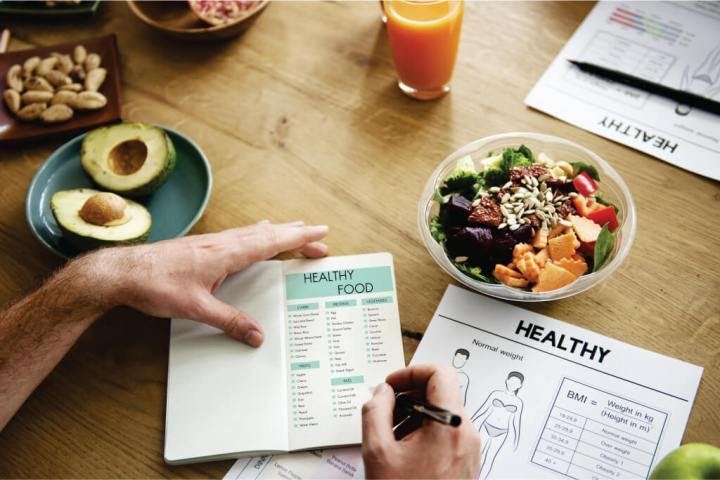
A complete Parkinson’s diet guide may help with many of the symptoms of Parkinson’s such as constipation, neurodegeneration, dementia and more. Eating a healthy diet specifically for Parkinson’s will lead you to not only feel better but will also lead to more likely living a longer and more full life.
So, here are some other foods you should also include in your diet.
Forget Fava Beans For Parkinsons
Fava beans contain an amino acid known as levodopa. Levodopa is an active ingredient in some Parkinson’s medications. Seems like a good reason to eat a lot of fava beans, right?
Nope. Dr. Gostkowski explains that the amount in the beans is tiny compared to what’s in your medication. “You can’t eat enough fava beans to have any effect on your symptoms,” he says.
Bananas also have levodopa in them, Dr. Gostkowski says. But, like fava beans, it’s not possible to eat enough bananas to affect PD symptoms. Of course, if you like fava beans or bananas, enjoy! But don’t go overboard or expect them to work like medication. Eat a variety of fruits, veggies, and whole grains for balance.
When You Have No Appetite
Some days, you just may not feel like eating at all.
Talk to your doctor. Sometimes, depression can cause poor appetite. Your hunger likely will return when you get treatment.
Walk or do another light activity to rev up your appetite.
Drink beverages after you’ve finished eating so you don’t feel full before the meal.
Include your favorite foods in your menu. Eat the high-calorie foods on your plate first. But avoid empty calories from sugary sodas, candies, and chips.
Perk up your meals by trying different dishes and ingredients.
Choose high-protein and high-calorie snacks, including:
- Ice cream
Taking Your Drugs And Food Together
Levodopa is the best medication for Parkinson’s. Ideally, you should take it on an empty , about 30 minutes before eating or at least one hour after a meal. But that can cause nausea in some people. Your doctor may prescribe something else or a different mix of drugs, which may not always make the nausea go away. In that case, your doctor may recommend you take medication for your side effects.
Also, ask your doctor if you should cut down on protein. In rare cases, a high-protein diet can make levodopa work less well.
The Latest In Nutrition And Parkinsons Disease
Eating well can help you take control of your health. In fact, choosing to eat healthy foods can improve your Parkinson’s disease symptoms. And some research suggests that sound nutritional choices could have disease-modifying effects, meaning that they could potentially slow PD progression. Changing your eating habits can be a challenge, but there are many small adjustments you can make to your that will add up to big benefits. Learning about them is the first step.
The following article is based on the latest research and a Parkinson’s Foundation Expert Briefings about nutrition, hosted by John E. Duda, M.D., from Philadelphia VA Parkinson’s Disease Research, Education & Clinical Center .
What Constitutes A Mind Diet
Another diet, known as the Dietary Approaches to Stop Hypertension diet was designed to help treat and prevent high blood pressure. The DASH diet emphasizes many of the same principles as the Mediterranean diet.
More recently, experts suggested a combination of the Mediterranean and DASH diet, meant to maximize cognitive benefits. It is entitled the Mediterranean-DASH Intervention for Neurodegenerative Delay or MIND diet. Past studies have investigated the cognitive benefits of this diet including one study which found that those who followed the MIND diet showed a slower decline in cognitive scores, and functioned cognitively as if they were 7.5 years younger than their counterparts who did not adhere to the diet.
The following constitutes the MIND diet:
- Green, leafy vegetables
The following should be avoided in the MIND diet:
- Red meat
- Butter and stick margarine
- Cheese
The principles of the MIND diet are very similar to the Mediterranean diet, with some notable additions. The MIND diet recommends green leafy vegetables such as spinach and kale as the first choice over other vegetables. Berries are specifically promoted, as opposed to fruit in general. A small amount of red wine daily is also encouraged.
In the current study, each person’s diet was calculated based on an extensive, validated, food-frequency questionnaire. The methods used in this study for scoring these questionnaires have been rigorously established.
When Should I Take My Parkinsons Medication
When you take your Parkinson’s medication should always be discussed with your GP, specialist or Parkinson’s nurse.
Some people with Parkinson’s may feel sick after taking medication, especially if they take it on an empty stomach.
Having a snack, such as a plain cracker or biscuit, at the same time as taking your medication can help ease this side effect. Or you may find taking medication with plenty of water can help to reduce nausea.
Your GP can also prescribe anti-sickness tablets if you do feel sick after taking your medication.
Talk to your GP, specialist or Parkinson’s nurse if you have difficulty swallowing your medication. It may help to take your medication with a cold drink, such as water, squash or fruit juice, or with yoghurt.
Managing Parkinsons: What To Eat And What Not To Eat
Parkinson’s disease is a chronic illness that affects the section of brain responsible for movement. This central nervous system disorder generally affects muscle control and balance, causing a person to lose control over certain body functions. Each year in the U.S., approximately 60,000 people are diagnosed with PD. The condition develops when nerve cells in the brain do not produce sufficient amounts of dopamine, a neurotransmitter that helps control the brain’s pleasure centers. People with PD often experience unique nutritional challenges. Learn more about Parkinson’s disease and how altering your diet can help you better manage your symptoms.
For People Living With Parkinsons Disease Exercise May Be One Of The Most Powerful Tools To Fight Some Symptoms And To Slow The Diseases Degenerative Nature
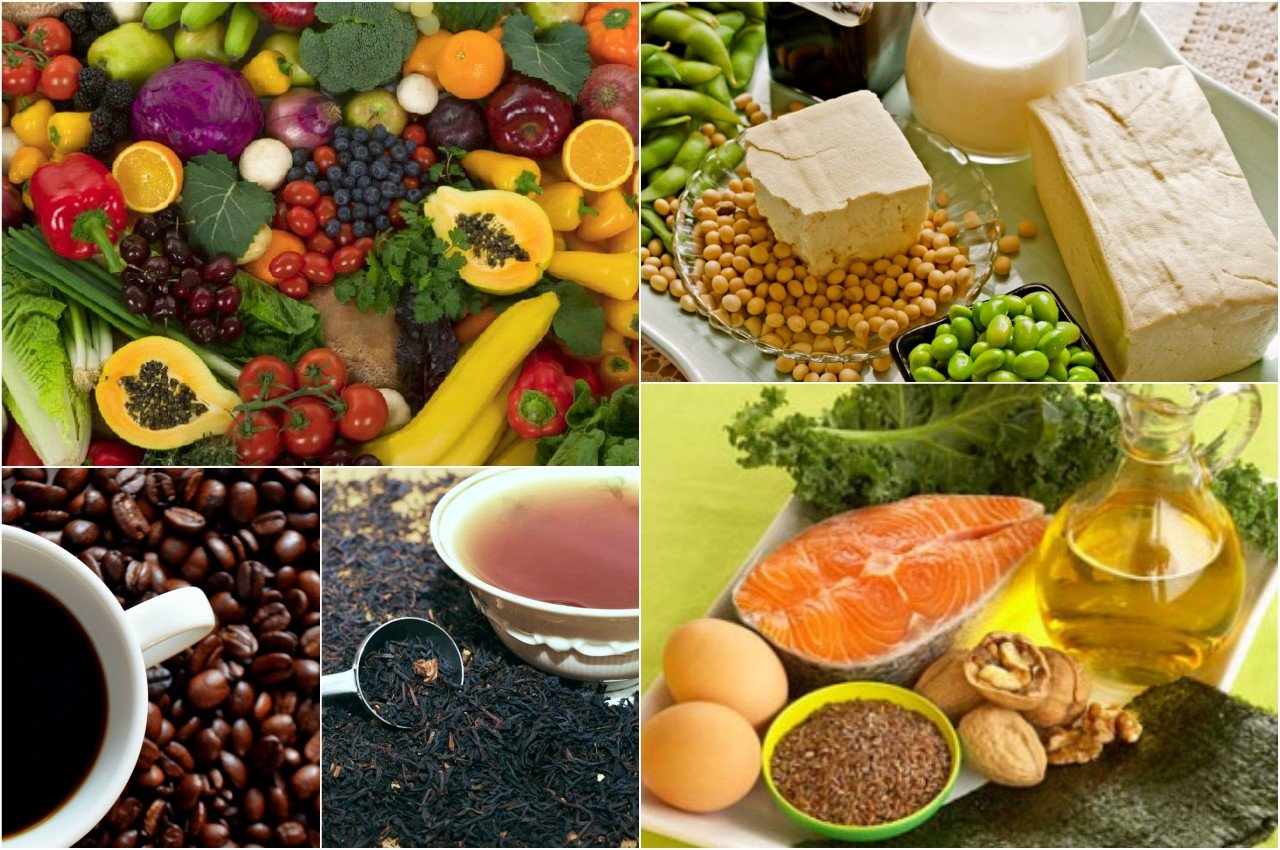
In addition to maintaining overall physical and emotional health and well being, exercise tends to minimize some of the primary and secondary symptoms of early onset Parkinson’s. Though exercise is not a cure, it can help people living with Parkinson’s disease maintain muscle tone and function, remain flexible, and improve overall mobility.
While the precise role exercise plays in delaying the progression of the disease is still being researched, studies consistently report that those with Parkinson’s Disease who exercise regularly tend to do better than those who do not. When it comes to exercise, being younger has its advantages. Younger people are usually stronger and better able to maintain a regular exercise program over time.
Many young people with Parkinson’s Disease have found that they are able to combine their exercise with grass roots fundraising efforts. From the well-known walk-a-thons held across the country to the young men and women who have walked marathons to raise funds, finding sponsors who will cheer you on every step or mile can help you remain committed to an exercise plan.
Eight Causes Of Parkinsons Disease
Many scientists and doctors dream of developing a cure for Parkinson’s disease. However, the reality is that Parkinson’s disease is caused by multiple factors and therefore is unlikely to respond to a single therapy.
we can make more progress and improve quality of life by addressing the many underlying causes of Parkinson’s disease
The Research: The Mediterranean Diets Role In The Prevention And Delayed Onset Of Parkinsons
Consistent findings show that the Mediterranean diet may reduce the risk of many diseases, such as stroke, hypertension, heart disease, diabetes, depression, dementia, and cancer, proving its global impact on health.
What about its relationship to Parkinson’s in particular? Eating a Mediterranean diet is associated with a lower risk of Parkinson’s and later age of Parkinson’s onset. One of these studies, recently published in the journal Movement Disorders, highlights the strong correlation between eating a plant-based diet and delayed onset of Parkinson’s, perhaps because the diet reduces inflammation in the body.
The study focuses on the connection between Parkinson’s, the , and the brain. The study authors compare the microbiome to “a giant factory that produces beneficial chemicals. Your input affects how the microbiome works.” When this “input” is primarily plant-based foods, the microbiome can flourish and inflammation, suggested as a root cause of Parkinson’s, can be reduced.
Is Green Tea Good For Parkinsons
Interestingly, some studies have observed that green tea, which is also high in antioxidants, helps slow the progression of Parkinson’s disease and other neurodegenerative disorders, according to a review published in March 2016 in the journal CNS Neurological Disorders-Drug Targets. However, how the drink works to prevent these conditions and what constitutes the safest and most effective “dose” of green tea hasn’t been determined.
Services To Help Those With Parkinsons
While there is no specific diet for Parkinson’s disease, it is important to maintain good overall health by eating a variety of foods. Individuals with PD may have trouble following a healthy diet. An in-home care agency can help prepare and serve nutritious meals, assist with feeding, and help with cleanup after meals. If you are a loved one is suffering from Parkinson’s disease and require services, contact an in-home care agency today.
Couples Care: Keeping Relationships Whole
One guide you might find helpful:
Selecting an in-home caregiver? Learn why couples care is an affordable solution for families.
The Research: The Mediterranean Diets Role In The Management And Progression Of Parkinsons
Eating a plant-based diet also provides many benefits to people living with Parkinson’s. Numerous studies have explored the eating plan’s effects on aging and cognitive function, including a systematic review published in Nutrients in 2017 that found that the Mediterranean diet “could play a major role in cognitive health and risk of Alzheimer’s disease and dementia.” Since cognitive changes are common as Parkinson’s progresses, choosing foods that benefit your brain and can slow cognitive decline is one way to influence your Parkinson’s journey positively.
The gut’s impact on Parkinson’s also plays a role in managing and possibly slowing the progression of Parkinson’s. Studies have found lower levels of Prevotella, a “good” gut bacterium, in people with Parkinson’s, along with higher levels of inflammatory bacteria; other studies have shown that eating a whole-food plant-based diet creates a gut environment where Prevotella and other healthy bacteria can flourish. The more good bacteria present, the better your overall health and your ability to live well with Parkinson’s every day.
In addition, eating a plant-based diet can help you manage multiple symptoms of Parkinson’s, including:
Parkinsons And Weight Gain
Parkinson’s medication does not tend to make people gain weight, but a small number of people may experience impulsive and compulsive behaviour. This is a side effect of some Parkinson’s medication, particularly dopamine agonists and, in some cases, .
Impulsive behaviour is when a person can’t resist the temptation to carry out certain activities. These are often activities that give an immediate reward or pleasure, such as gambling, hypersexuality and overeating.
So, someone may eat large amounts of food in a short period of time because they can’t control their appetite, and as a result, they gain weight.
If you think you’re experiencing this behaviour, speak to your GP, specialist or Parkinson’s nurse.
We don’t advise anyone to stop taking or to change their Parkinson’s medication without the advice of their specialist or Parkinson’s nurse.
Any changes have to be made slowly and gradually, and should always be carried out and reviewed by a specialist, because of the risk of side effects and withdrawal symptoms.
Someone experiencing impulsive or compulsive behaviour may not realise they have a problem. So it’s important that their carer is aware of these side effects.
Deep brain stimulation and weight gain
Some people with Parkinson’s may put on weight quickly after having deep brain stimulation, a surgery sometimes used to treat the condition.
If you think you’re experiencing this behaviour, speak to your GP, specialist or Parkinson’s nurse.
Foods To Avoid In A Parkinsons Disease Diet
If your goal is to maintain overall health with Parkinson’s disease — and it should be — you should avoid or reduce your intake of some of the same potentially harmful foods as people without the condition.
For example, a diet with lots of sugar can add too many calories and provide your body with too few nutrients. It can also contribute to tooth decay and increase your risk of diabetes.
In addition, foods high in salt and sodium content can increase the risk of high blood pressure, heart attack, and stroke. According to the American Heart Association, some of the saltiest foods in typical diets include:
- Breads and rolls
- Cold cuts and cured meats
- Soup
- Burritos and tacos
“Most of our patients have problems with low blood pressure, due to issues with autonomic nervous system function in Parkinson’s disease,” Subramanian adds. “So in some cases, we recommend a little extra salt in the diet, or even energy drinks, to boost blood pressure.”
Either way, you should check with your doctor about taking appropriate dietary steps to manage blood pressure along with Parkinson’s disease.
Also limit foods high in calories and fat, particularly saturated and trans fat, which can increase your risk of heart problems as well as certain types of cancer and make it more difficult for you maintain a healthy weight.
Talk To Your Doctor About Food And Medication Interactions
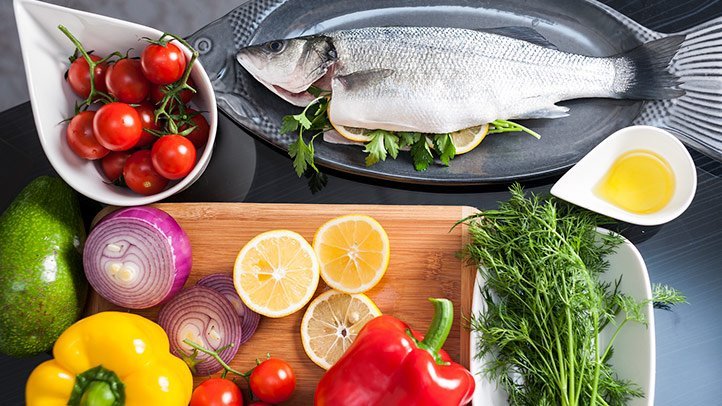
It’s a good idea to talk to your doctor about additional foods you should avoid due to potential interactions with medications you might be prescribed. It’s also important to talk to your doctor before starting any additional supplementation for the same reason. Some foods and supplements can interfere with medication, making this conversation an important one to have to ensure your medication is working effectively to manage your symptoms.
Like this article? Here are some other articles we think you’d like:
A Protein Redistribution Diet
Fine tuning of levodopa and timing of meals becomes more important in the advancing stages of Parkinson’s to optimise levodopa absorption and effectiveness.
There has been some research to support that protein redistribution diets improve the effectiveness of the levodopa amongst individuals experiencing more frequent motor fluctuations and worsening motor control . However the effect of PRDs varies from individual to individual with some patients even experiencing a worsening of motor symptoms.
A protein redistribution diet is where the majority of the protein is consumed later in the day to maximise a person’s ‘on’ time during the daytime hours. PRD needs to be very specifically planned and monitored by a dietician to ensure that adequate energy and nutrient requirements are being met. It is not considered a low protein diet, rather it is a shift of dietary protein towards the end of the day. The amount of protein consumed is the same.
